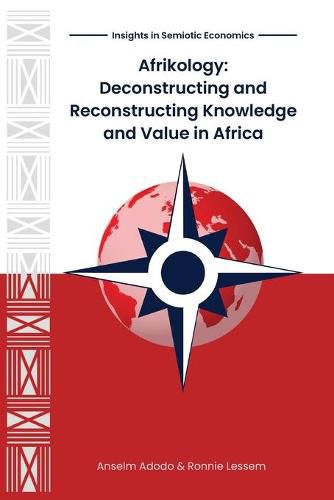Readings Newsletter
Become a Readings Member to make your shopping experience even easier.
Sign in or sign up for free!
You’re not far away from qualifying for FREE standard shipping within Australia
You’ve qualified for FREE standard shipping within Australia
The cart is loading…






This title is printed to order. This book may have been self-published. If so, we cannot guarantee the quality of the content. In the main most books will have gone through the editing process however some may not. We therefore suggest that you be aware of this before ordering this book. If in doubt check either the author or publisher’s details as we are unable to accept any returns unless they are faulty. Please contact us if you have any questions.
During the twentieth century, global politics and economics have been marked by two politically, economically, and intellectually divi - sive rather than culturally and psychologically integrative forces. This has been reflected in the East/West mutually antagonistic divide of communism/capitalism and the North/South chasm of wealth and poverty. The result, worldwide, has been, to a considerable degree, stasis and disintegration. In this book, the authors argue that both capitalism and communism were born out of narrow views of our hu - manity, ignoring the cultural richness of the rest of the world.
The evidence is everywhere: climate change, terrorism, rising poverty, political tension, social chaos and food insecurity. But this is not a book of lamentations. The authors present real case studies to dem - onstrate that there is an alternative to the current chaos: Afrikology. It is Afri- because it is inspired by ideas initially produced in Africa, the cradle of humankind; it is ko (logy) because it is based on logos, the word from which the world was originated, but at the same time, an episteme, a worldly-wise eco-logical knowledge, and consciousness. It stands for a plurality of epistemic directions. Knowledge, therefore, is an interpretation that is always situated within a living communal tradition, co-created by individuals, communities, and enterprises, specifically out of Africa’s genius, alongside others.
$9.00 standard shipping within Australia
FREE standard shipping within Australia for orders over $100.00
Express & International shipping calculated at checkout
This title is printed to order. This book may have been self-published. If so, we cannot guarantee the quality of the content. In the main most books will have gone through the editing process however some may not. We therefore suggest that you be aware of this before ordering this book. If in doubt check either the author or publisher’s details as we are unable to accept any returns unless they are faulty. Please contact us if you have any questions.
During the twentieth century, global politics and economics have been marked by two politically, economically, and intellectually divi - sive rather than culturally and psychologically integrative forces. This has been reflected in the East/West mutually antagonistic divide of communism/capitalism and the North/South chasm of wealth and poverty. The result, worldwide, has been, to a considerable degree, stasis and disintegration. In this book, the authors argue that both capitalism and communism were born out of narrow views of our hu - manity, ignoring the cultural richness of the rest of the world.
The evidence is everywhere: climate change, terrorism, rising poverty, political tension, social chaos and food insecurity. But this is not a book of lamentations. The authors present real case studies to dem - onstrate that there is an alternative to the current chaos: Afrikology. It is Afri- because it is inspired by ideas initially produced in Africa, the cradle of humankind; it is ko (logy) because it is based on logos, the word from which the world was originated, but at the same time, an episteme, a worldly-wise eco-logical knowledge, and consciousness. It stands for a plurality of epistemic directions. Knowledge, therefore, is an interpretation that is always situated within a living communal tradition, co-created by individuals, communities, and enterprises, specifically out of Africa’s genius, alongside others.